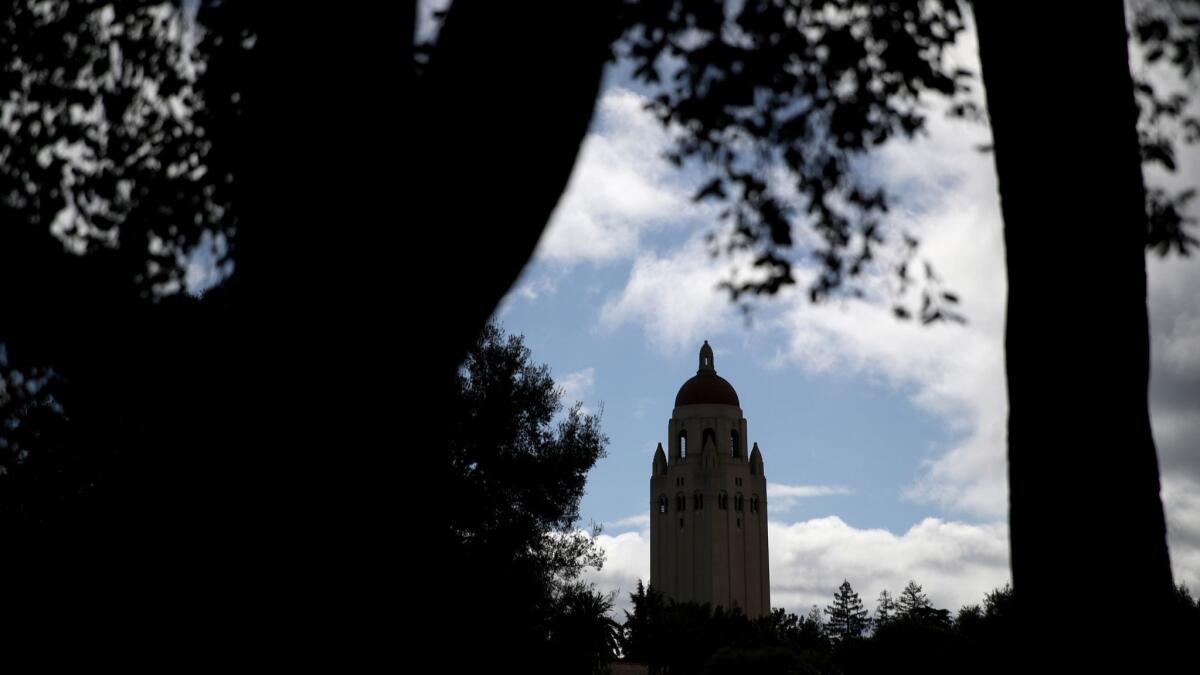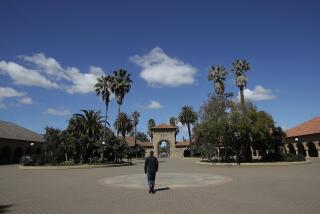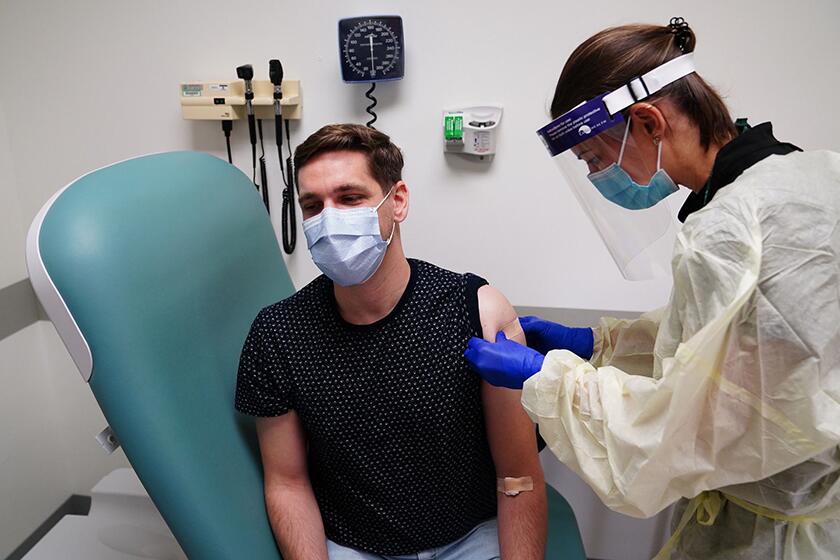Op-Ed: The real advantage the rich have in getting into college is biological

- Share via
The college admissions scandal is appalling — captains of industry, entrepreneurs and actors charged with paying $25 million in bribes and chicanery to manipulate the system and assure their kids entry into the country’s most prestigious universities. (My favorite detail: photoshopping a kid’s head onto an athlete’s body to prove his or her fitness for “recruit” status in a college athletic program.)
It’s shocking that people could use their wealth and power to game what’s supposed to be a merit-based process. But the real outrage is the state of the unmanipulated system. There’s no crime to charge, no dawn raids to arrest the wrongdoers — the basic inequality here is strictly legal.
We can all identify the obvious advantages: music and ice-skating lessons, entrance exam prep classes, vacation travel that fosters sophistication, a lit teacher at that private school who sparks an obsessive interest in Norse sagas, free time to do commendable volunteer work instead of having to flip burgers for minimum wage. Such things undoubtedly burnish college applications at the Ivies, USC, UCLA or Stanford, where I teach.
If you grow up in poverty, rather than in comfort, by kindergarten you’re likely to be lagging behind average in the development of the frontal cortex.
The well-to-do, however, can give their kids a decisive leg up in ways you might not notice: Money buys better brain chemistry, smarter biology.
For starters, most well-to-do mothers get good prenatal healthcare. Among the mothers charged on Tuesday, few probably drank to excess when they were pregnant — thus avoiding fetal alcohol syndrome, which produces children with intellectual disabilities, poor memory and reasoning, and attention and hyperactivity problems. All of which would be turnoffs for the Ivies.
The moms in question were also unlikely to have been subject to major stress during pregnancy. By “stress” I don’t mean the stock market taking a dive, but something like homelessness or wondering where your next meal is coming from. Chronically elevated stress hormone levels in a pregnant woman translate to the fetus’ brain being marinated in those same hormones, which in turn translates to a larger than normal amygdala in high schoolers. Results? Attention problems and a tendency toward anxiety, neither of which bode well for getting high marks on the SATs.
Once out of the womb, wealthy kids’ brain advantages only increase. Such youngsters don’t have nutrition problems. Ounce for ounce the brain is the most metabolically demanding part of the body, especially when it is developing like mad during childhood. Better nutrition means more neurons when it comes time for a demanding admissions interview.
If you grow up in poverty, rather than in comfort, by kindergarten you’re likely to be lagging behind average in the development of the frontal cortex, which creates deficits in decision-making skills, impulse control, emotional regulation, long-term planning. Poor frontal function in kindergarteners is a predictor of poor academic performance all through school (among other problems).
Enter the Fray: First takes on the news of the minute »
Other predictors of poor academic trajectory also parallel poverty: The poor are more likely to witness or experience physical, psychological or sexual abuse at home (these things obviously occur among the wealthy but at a statistically lower rate). Ditto for having a family member who is incarcerated (well, until this week), or struggling with substance abuse. And for having excess lead in their drinking water, breathing pollutants in the playground next to an oil refinery, living in a community whose meager resources result in lousy schools.
Although the parents caught up in the federal indictments may have had anxieties — how to get their kids into just the right school — they didn’t have to worry about essentials like where the mortgage money was coming from. That level of security is another proven academic advantage: When experimenters induce economic distress in subjects who are wealthy — asking them to imagine an expensive car repair, for instance — nothing much changes in their cognitive skills. But do the same experiment with the less economically fortunate and you cause “steep temporal discounting” — gratification postponement gets a lot harder, which, writ large, means more bad lifestyle choices, more being penny-wise and dollar-foolish, more of living as if the future is just a hypothetical.
Federal investigators have charged 50 people in the college admissions scam. Some are the ringleaders at the counseling service that orchestrated the schemes. The bulk are parents who were allegedly determined to take no chances when it came to where their kids went to college. It’s a pity they didn’t realize how much of a head start they already had.
Stanford University neuroscientist Robert M. Sapolsky is the author, most recently, of “Behave: The Biology of Humans at Our Best and Worst.”
Follow the Opinion section on Twitter @latimesopinion and Facebook
More to Read
A cure for the common opinion
Get thought-provoking perspectives with our weekly newsletter.
You may occasionally receive promotional content from the Los Angeles Times.









